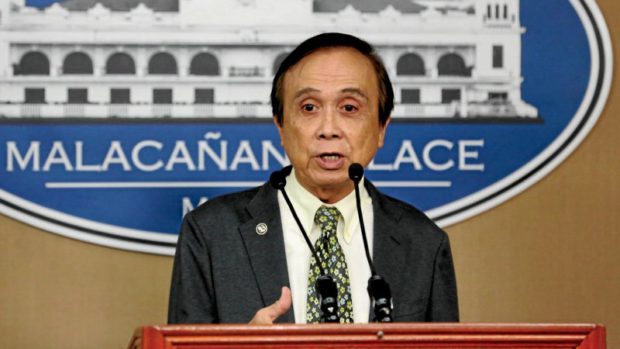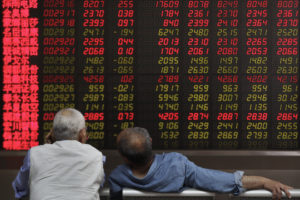
NEDA chief Ernesto Pernia. INQUIRER file photo / JOAN BONDOC
MANILA, Philippines — “Festina lente” or “make haste slowly.”
This was the dictum that the country’s chief economist wanted government agencies to put into practice as implementation of projects go full steam ahead with the P3.7-trillion 2019 national budget already in place.
Socioeconomic Planning Secretary and National Economic and Development Authority (Neda) chief Ernesto M. Pernia told reporters Wednesday that at the next meeting of the interagency Economic Development Cluster (EDC) on Friday, the departments of Public Works and Highways (DPWH) and of Transportation (DOTr) will again present their respective projects for rollout.
Last week, Finance Secretary Carlos G. Dominguez III, who heads the Duterte administration’s economic team, said he “wasn’t satisfied” during last week’s EDC meeting as implementing agencies claimed they can push through with projects but were unable to detail how.
“That ‘catch up’ is a myth because people who had not been in operations don’t realize that when you try to catch up, it costs you more – you pay overtime, so the same road you’re going to build, it costs more. And when you’re rushing you will make more mistakes… It’s better to do it in a deliberate way,” Dominguez had explained.
The government had wanted to make up for the underspending on public goods and services during the first four and a half months of the year – a result of the the delayed approval of this year’s national budget amid squabbles over “pork” funds among legislators.
Pernia agreed with Dominguez, saying that “catching up also has limits.”
“Even before projects can start, some things have to be ironed out first,” he noted.
While the government “slowly but surely” implements public projects, Pernia said the private sector was also expected to help boost spending.
For Pernia, “it’s going to be a whole of the government and the private sector” that would reverse slower growth in the first quarter.
The Philippines’ economic growth fell to a four-year low of 5.6 percent during the first quarter mostly due to the delayed implementation of the 2019 national appropriations that slowed government spending alongside weak growth in the agriculture and exports sectors.


